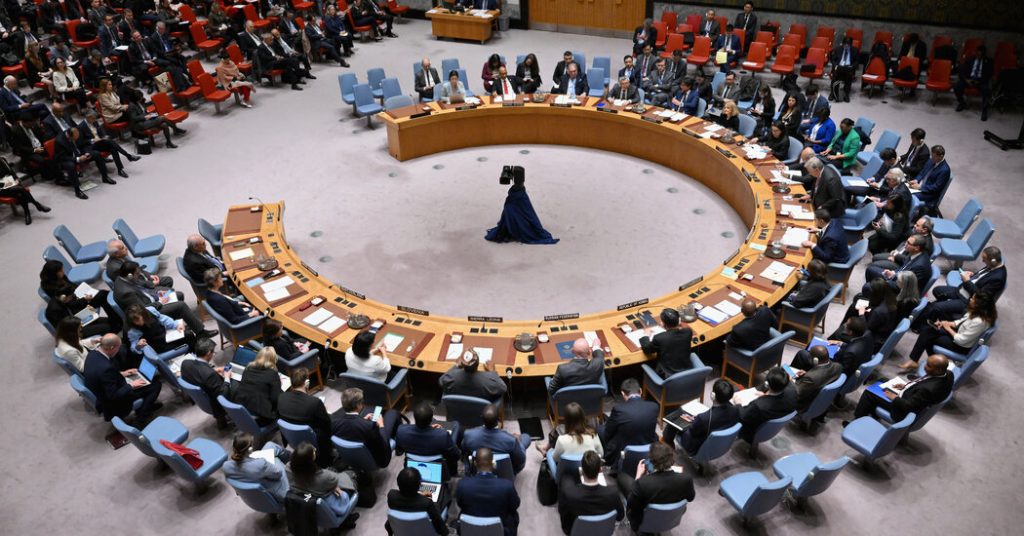The United States vetoed a resolution at the United Nations Security Council that would have granted full membership status to Palestine, despite 12 other nations voting in favor. Palestinian envoy Riyad Mansour expressed disappointment, stating that self-determination is the natural right of the Palestinian people. Israel’s foreign minister, Israel Katz, viewed the rejected proposal as a refusal to reward terrorism. The U.S. believes direct negotiations between Israel and the Palestinian Authority are the best path to Palestinian statehood, rather than U.N. intervention.
The Security Council has long advocated for a two-state solution between Palestine and Israel, but negotiations have not led to substantial progress. The U.S., a staunch ally of Israel, wielded its veto power during a high-profile Council meeting addressing the Palestinian bid for U.N. membership. The rejected resolution sought General Assembly recognition of Palestine as a U.N. member state, with veto power resting with the U.S., Britain, France, Russia, and China. Full membership for Palestine at the U.N. would have granted voting rights and a Security Council seat, but many essential issues, such as borders and diplomatic recognition, would have remained unresolved.
The Palestinian Authority has been pursuing statehood encompassing the West Bank, East Jerusalem, and the Gaza Strip, territories currently under Israeli control. Progress towards Palestinian statehood has been limited since the Oslo Accords of the 1990s, particularly with the rise of Hamas in Gaza in 2007. The conflict between Hamas and Israel has resulted in significant casualties and displacements, further complicating the Palestinian bid for statehood. The involvement of neighboring countries and Iran has heightened tensions and further complicated resolution efforts.
Despite the failed U.N. bid, the Palestinian Authority continues to seek recognition as an independent and sovereign state. The U.S. remains committed to supporting direct negotiations between Israel and the Palestinian Authority as the preferred path to statehood. Full membership at the U.N. would have provided symbolic validation of Palestinian statehood aspirations but would not have resolved critical issues. The complexities surrounding borders, diplomatic relations, and ongoing conflicts highlight the challenges facing the Palestinian quest for nationhood amidst a turbulent regional landscape.
The veto of the Palestinian bid for U.N. membership underscores the ongoing geopolitical challenges in the Middle East, particularly regarding the Israeli-Palestinian conflict. The U.S.’s alliance with Israel and its stance on direct negotiations reflect broader international dynamics that impact the region’s stability and peace efforts. The rejection of the resolution highlights the intricate web of political, historical, and security considerations that shape the prospects for Palestinian statehood and peace in the region. As the international community continues to grapple with these complexities, the aspirations of the Palestinian people for self-determination and statehood remain central to the broader quest for peace in the Middle East.


